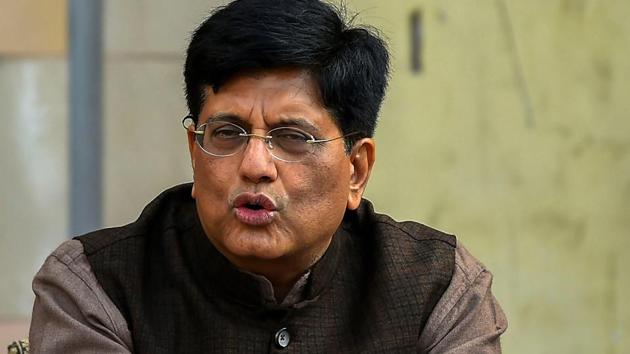Interim budget 2019: All you need to know
The Union finance ministry has issued a clarification that the budget will be called interim budget amid media reports and speculation that the government could present a full budget.
The BJP-led National Democratic Alliance government will present its last budget on February 1 before the upcoming Lok Sabha elections, which will be held in April-May this year.

The Union finance ministry has issued a clarification that the budget will be called interim budget amid media reports and speculation that the government could present a full budget.
Union minister Piyush Goyal, who has been temporarily been given charge of the finance ministry in view of Arun Jaitley’s indisposition, will present the interim budget.
Watch: Economy is slowing, shows Mint’s Macro Tracker
Here is all you need to know about the interim budget:
What is an interim budget?
An interim budget is the budget of a government that is going through a period of transition.
It is quite similar to a full-budget as the government presents expenditure for the ongoing fiscal and projections for the upcoming fiscal year through it. An interim budget is a complete set of accounts, including both expenditure and receipts, and gives the complete financial statement.
The Union government can introduce tax changes but during an election year, successive governments have avoided making any major changes in income tax laws during an interim budget.
When is an interim budget presented?
An interim budget is presented by a government if it does not have the time for a full Budget or because the general elections are to be conducted shortly. So traditionally, in an election year, the outgoing government presents an interim budget. The task of framing the full budget is left to the incoming government.
Also read: Rahul Gandhi’s announcement on minimum income for poor has nothing to do with budget: Chidambaram
What’s is the need for interim budget?
Governments require Interim Budgets to function during the time it takes for a new government to create its own fiscal plan. The budget for the year approved by Parliament gives the government spending rights only till March 31, the end of the financial year.
The government needs parliamentary authority for incurring expenditure in the new fiscal year until a full Budget in case it is not able to present one before the financial year ends.
Parliament passes a vote-on-account through the Interim Budget, which allows the government to meet the expenses of the administration such as paying the salaries and for its programmes.
This is until the new Parliament considers and passes the Budget for the whole year. In an election situation, the vote-on-account is usually for a four-month period.
How is interim budget different from regular budget?
In an interim budget , the vote-on-account seeks Parliament’s nod for incurring expenditure for part of a fiscal year. The estimates are presented for the entire year, as is the case with the regular Budget. The new government has the full freedom to change the estimates completely when the final Budget is presented.
Can the government announce new taxes and policies?
The government can make tax changes in the interim budget under the Constitution. The 12 interim budgets since Independence have refrained from announcing big-ticket changes or new schemes.
At the same time, several governments, including the Congress-led United Progressive Alliance in 2009, haven’t shied away from making policy pronouncements in interim budgets.






